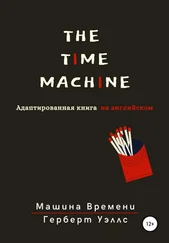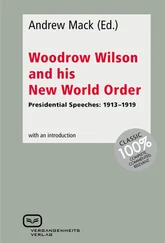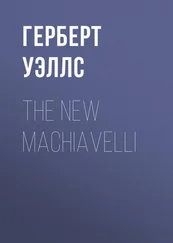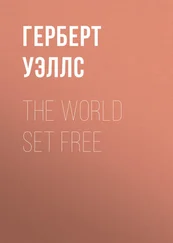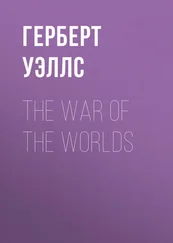Герберт Уэллс - The New World Order
Здесь есть возможность читать онлайн «Герберт Уэллс - The New World Order» весь текст электронной книги совершенно бесплатно (целиком полную версию без сокращений). В некоторых случаях можно слушать аудио, скачать через торрент в формате fb2 и присутствует краткое содержание. Год выпуска: 1940, Жанр: Политика, Публицистика, на английском языке. Описание произведения, (предисловие) а так же отзывы посетителей доступны на портале библиотеки ЛибКат.
- Название:The New World Order
- Автор:
- Жанр:
- Год:1940
- ISBN:нет данных
- Рейтинг книги:4 / 5. Голосов: 1
-
Избранное:Добавить в избранное
- Отзывы:
-
Ваша оценка:
- 80
- 1
- 2
- 3
- 4
- 5
The New World Order: краткое содержание, описание и аннотация
Предлагаем к чтению аннотацию, описание, краткое содержание или предисловие (зависит от того, что написал сам автор книги «The New World Order»). Если вы не нашли необходимую информацию о книге — напишите в комментариях, мы постараемся отыскать её.
The New World Order — читать онлайн бесплатно полную книгу (весь текст) целиком
Ниже представлен текст книги, разбитый по страницам. Система сохранения места последней прочитанной страницы, позволяет с удобством читать онлайн бесплатно книгу «The New World Order», без необходимости каждый раз заново искать на чём Вы остановились. Поставьте закладку, и сможете в любой момент перейти на страницу, на которой закончили чтение.
Интервал:
Закладка:
It is doubtful in a world of rising needs and standards if many people would want to live in manifestly old houses, any more than they would want to live in old clothes. Except in a few country places where ancient buildings have wedded themselves happily to some local loveliness and become quasi-natural things, or where some great city has shown a brave façade to the world, I doubt if there will be much to preserve. In such large open countries as the United States there has been a considerable development of the mobile home in recent years. People haul a trailer-home behind their cars and become seasonal nomads. But there is no need to expatiate further on a limitless wealth of possibilities. Thousands of those who have been assisting in the monstrous clumsy evacuations and shiftings of population that have been going on recently, must have had their imaginations stirred by dim realisation of how much better all this might be done, if it were done in a new spirit and with a different intention. There must be a multitude of young and youngish people quite ripe for infection by this idea of cleaning up and resettling the world. Young men who are now poring over war maps and planning annexations and strategic boundaries, fresh Maginot lines, new Gibraltars and Dardanelles, may presently be scheming the happy and healthy distribution of routes and residential districts in relation to this or that important region of world supply for oil or wheat or water-power. It is essentially the same type of cerebration, better employed.
Considerations of this sort are sufficient to supply a background of hopeful activities to our prospective world order. But we are not all architects and gardeners; there are many types of minds and many of those who are training or being trained for the skilled co-operations of warfare and the development of a combatant morale, may be more disposed to go on with definitely educational work. In that way they can most easily gratify the craving for power and honourable service. They will face a world in extreme need of more teachers and fresh-minded and inspiring teachers at that. At every level of educational work from the kindergarten to the research laboratory, and in every part of the world from Capricornia to Alaska and from the Gold Coast to Japan, there will be need of active workers to bring minds into harmony with the new order and to work out, with all the labour saving and multiplying apparatus available, cinema, radio, cheap books and pictures and all the rest of it, the endless new problems of human liaison that will arise. There we have a second line of work along which millions of young people may escape the stagnation and frustration which closed in upon their predecessors as the old order drew to its end.
A sturdy and assertive variety of the new young will be needed for the police work of the world. They will be more disposed for authority and less for teaching or creative activities than their fellows. The old proverb will still hold for the new order that it takes all sorts to make a world, and the alternative to driving this type of temperament into conspiracy and fighting it and, if you can, suppressing it, is to employ it, win it over, trust it, and give it law behind it to respect and enforce. They want a loyalty and this loyalty will find its best use and satisfaction in the service of world order. I have remarked in the course of such air travel as I have done, that the airmen of all nations have a common resemblance to each other and that the patriotic virus in their blood is largely corrected by a wider professionalism. At present the outlook before a young airman is to perish in a spectacular dog-fight before he is five and twenty. I wonder how many of them really rejoice in that prospect.
It is not unreasonable to anticipate the development of an ad hoc disarmament police which will have its greatest strength in the air. How easily the spirit of an air police can be de-nationalised is shown by the instance of the air patrols on the United States-Canadian border, to which President Roosevelt drew my attention. There is a lot of smuggling along that border and the planes now play an important part in its suppression. At first the United States and Canada had each their own planes. Then in a wave of common sense, the two services were pooled. Each plane now carries a United States and a Canadian customs officer. When contraband is spotted the plane comes down on it and which officer acts is determined by the destination of the smuggled goods. There we have a pattern for a world struggling through federation to collective unity. An ad hoc disarmament police with its main strength in the air would necessarily fall into close co-operation with the various other world police activities. In a world where criminals can fly anywhere, the police must be able to fly anywhere too. Already we have a world-wide network of competent men fighting the white-slave traffic, the drug traffic and so forth. The thing begins already.
All this I write to provide imaginative material for those who see the coming order as a mere blank interrogation. People talk much nonsense about the disappearance of incentive under socialism. The exact opposite is the truth. It is the obstructive appropriation of natural resources by private ownership that robs the prosperous of incentive and the poor of hope. Our Declaration of Human Rights assures a man the proper satisfaction of all his elementary needs IN KIND, and nothing more. If he wants more than that he will have to work for it, and the healthier he is and the better he is fed and housed, the more bored he will be by inactivity and the more he will want something to do. I am suggesting what he is likely to do in general terms, and that is as much as one can do now. We can talk about the broad principles upon which these matters will be handled in a consolidating world socialism, but we can scarcely venture to anticipate the detailed forms, the immense richness and variety of expression, an ever-increasing number of intelligent people will impose upon these primary ideas.
But there is one more structural suggestion that it may be necessary to bring into our picture. So far as I know it was first broached by that very bold and subtle thinker, Professor William James, in a small book entitled The Moral Equivalent of War. He pointed out the need there might be for a conception of duty, side by side with the idea of rights, that there should be something in the life of every citizen, man or woman alike, that should give him at once a sense of personal obligation to the World State and personal ownership in the World State. He brought that into relation with the fact that there will remain in any social order we can conceive, a multitude of necessary services which by no sort of device can be made attractive as normal life-long occupations. He was not thinking so much of the fast-vanishing problem of mechanical toil as of such irksome tasks as the prison warder's, the asylum attendant's; the care of the aged and infirm, nursing generally, health and sanitary services, a certain residuum of clerical routine, dangerous exploration and experiment. No doubt human goodness is sufficient to supply volunteers for many of these things, but are the rest of us entitled to profit by their devotion? His solution is universal conscription for a certain period of the adult life. The young will have to do so much service and take so much risk for the general welfare as the world commonwealth requires. They will be able to do these jobs with the freshness and vigour of those who know they will presently be released, and who find their honour in a thorough performance; they will not be subjected to that deadening temptation to self-protective slacking and mechanical insensitiveness, which assails all who are thrust by economic necessity into these callings for good and all.
Читать дальшеИнтервал:
Закладка:
Похожие книги на «The New World Order»
Представляем Вашему вниманию похожие книги на «The New World Order» списком для выбора. Мы отобрали схожую по названию и смыслу литературу в надежде предоставить читателям больше вариантов отыскать новые, интересные, ещё непрочитанные произведения.
Обсуждение, отзывы о книге «The New World Order» и просто собственные мнения читателей. Оставьте ваши комментарии, напишите, что Вы думаете о произведении, его смысле или главных героях. Укажите что конкретно понравилось, а что нет, и почему Вы так считаете.
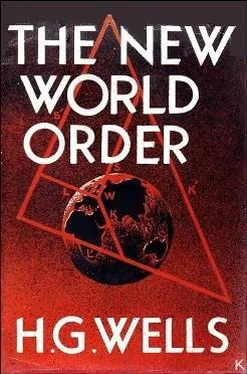
![Герберт Уэллс - The War of the Worlds [С англо-русским словарем]](/books/26611/gerbert-uells-the-war-of-the-worlds-s-anglo-thumb.webp)

